SU Elections 2021 Q&A: Faculty of Arts Students’ Council and GFC candidates Part I
Meet some of the arts students running for Student's Council and General Faculties Council.
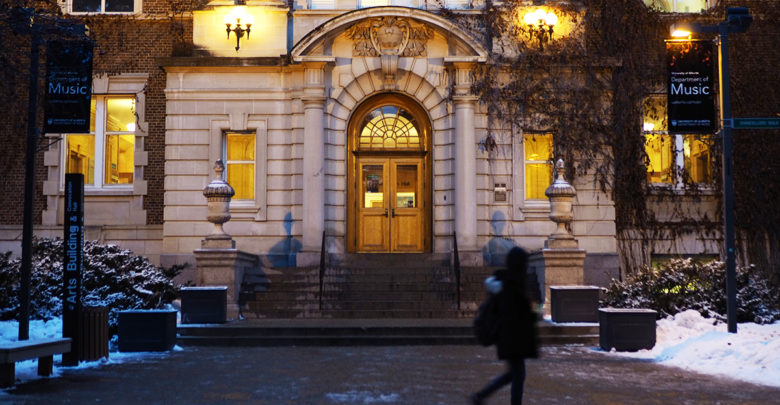 Helen Zhang
Helen ZhangThis article is part five of a seven-part series.
Although the election for Students’ Union executives is over, it’s now time to for students to vote for Students’ Council and General Faculties Council (GFC) representatives.
On March 17 and 18, undergraduate students will be voting for both the Students’ Council councillors and GFC representatives for their respective faculties.
Students’ Council oversees the Students’ Union in terms of its policies, financials, and mandate. It consists of 40 councillors.
GFC is the highest academic decision making body at the university. Out of its 159 members, there are around 40 undergraduate representatives.
To help students get to know the candidates, The Gateway interviewed them to learn more about how they would represent students and what issues they hope to address in these roles.
This is part one of arts candidates Q&A’s. The second article can be found here.
Responses have been edited for brevity and clarity.
Arts Candidates
The Gateway reached out to all candidates, but only the following participated. See a full list of candidates here.
- Mayah Ghalab, a third-year psychology and sociology student — running for GFC.

- Serena Yabut, a third-year english student — running for Students’ Council.
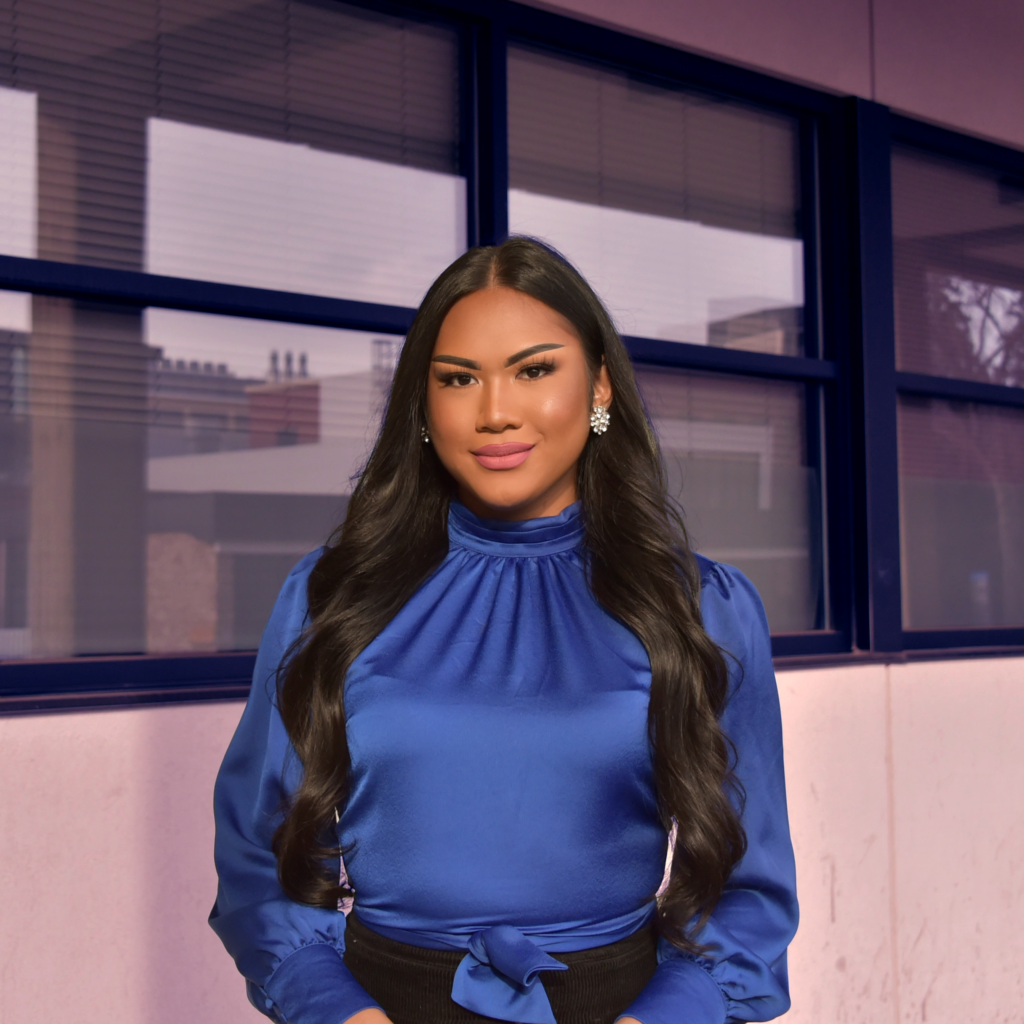
- Rebeca Avila, a first-year political sciences and philosophy student — running for Students’ Council.
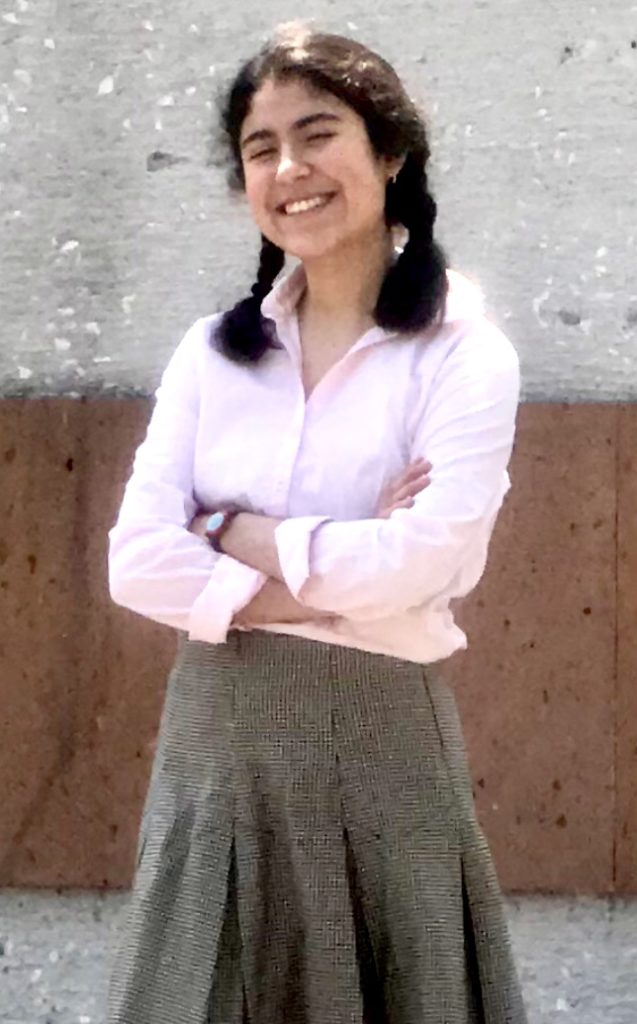
- Vaughn Beaulieu-Mercredi, a fourth-year political science student — running for Students’ Council and GFC.
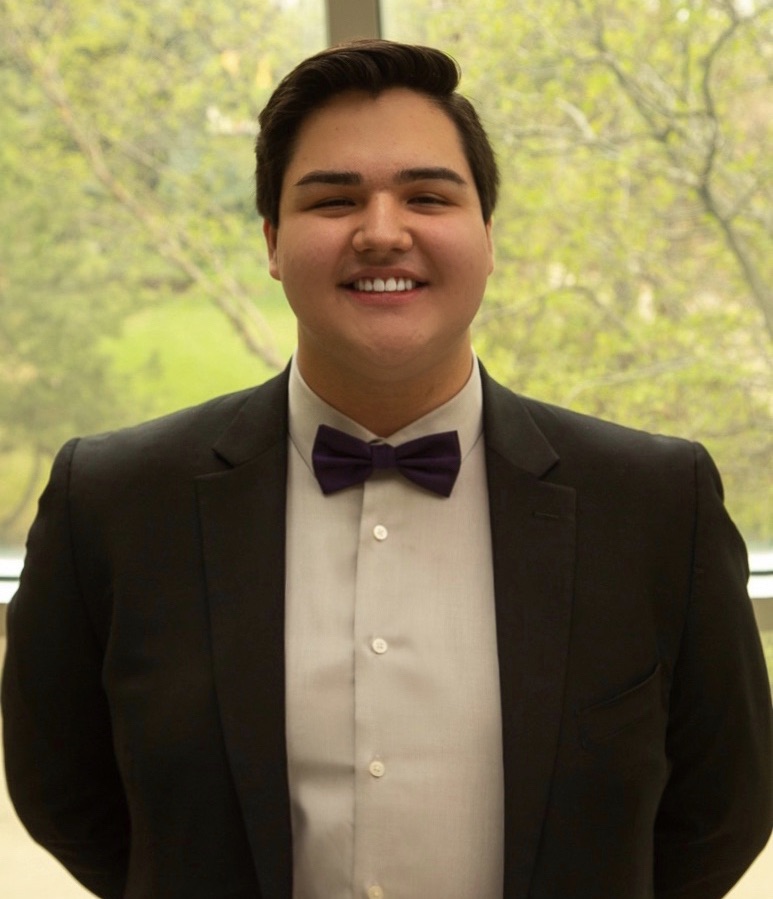
- Chris Beasley, a fourth-year political science student — running for Students Council and GFC.
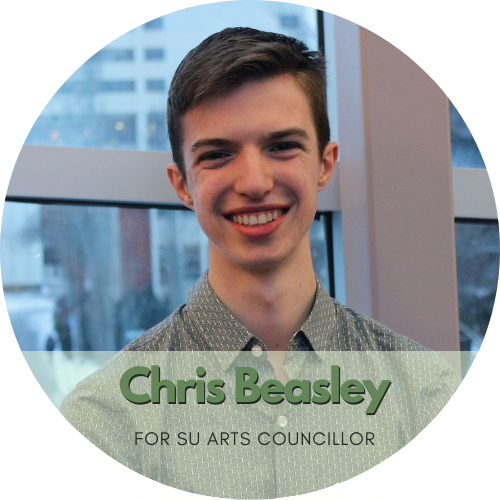
Why are you running for Students’ Council/ GFC?
Mayah Ghalab: More than anything, I’m here because it is not about the ideas, it’s about making these ideas happen. Our student community is a brimming, vibrant ocean of untapped voices for growing and advancing our education and campus affairs. Over the years leading up to my senior academic year, I have engaged, listened, and observed some of these passionate proposals and initiatives, and now I’m here to ensure that they become a reality! This includes making diversity an active experience, supporting and advocating for our athletes legacy fund, ensuring cross institutional transparency, and pressuring the provincial government to reverse tuition increases and university funding cuts. Above all, I’m here to be your voice, to advocate for you.
Serena Yabut: For the past three years of my life on campus, I have been involved in various student organizations in hopes to always affect positive change in my own ways. With that same mindset, I decided to run for Students’ Council last year to be one of your arts representatives. I was lucky enough to win one of the six spots, and since then I’ve learned so much more than I could have imagined. One of my proudest accomplishments in my time on council is my unwavering commitment to advocating for the marginalized students of our community. From BIPOC students to LGBTQ2S+ students, I have always made sure that they continue to be taken into consideration in a world that often neglects their needs as students and as individuals. Through my lived experiences and knowledge as a Students’ Council arts councillor, an Organization for Arts Students and Interdisciplinary Studies (OASIS) humanities councillor, a member of the Students’ Union Nominating Committee, a member of the Dean of Students Review Committee, and my valued seat on the Students’ Union Equity, Diversity and Inclusion Taskforce, I believe that my work is still not done. I feel that I still have so much to give when it comes to being a voice for marginalized students on campus. This is why I am running to be re-elected into my arts councillor position on Students’ Council for 2021-22.
Rebeca Avila: I’ve always been really passionate about advocacy and getting involved with the campus community. I decided to run for council because it represents an amazing opportunity for me to contribute to making U of A a better place for students. I believe the experience I’ve gained during this year will help me better approach students’ concerns.
Vaughn Beaulieu-Mercredi: To put it simply, I am running because the University of Alberta needs to do better when it comes to serving its students. I believe that we are all stronger together, but for too long racialized and marginalized voices have not been actively present at the table or in the chamber. It is time that changed. I am running on the commitment that these voices must be heard and represented.
Chris Beasley: I am running for Students’ Council and GFC because there is work that I want to get done. I’ve spent the last few years deeply involved in student governance for the faculty of arts and I see this as the next way that I can continue to serve my community. I have been both an Students’ Union councillor and a GFC councillor for arts in the past and, on top of that, I’ve been deeply involved with OASIS. I’ve been the president of OASIS for this past year and I’ve spent it fighting for arts students against provincial budget cuts and making sure that the needs of arts students were always considered throughout the academic restructuring process.
I’m running for council this year because I want to return to being part of the Students’ Union decision-making. I am running for Students’ Council because there are ways that I can work to help the Students’ Union serve students better. This involves working on the ARRC recommendations regarding council presence in events, the Land Acknowledgement, and Kairos Blanket Exercises. This also looks like supporting the translation committee to help it better recruit volunteers to translate core Students’ Union documents into French and securing honorariums for these volunteers.
Moreover, I am running because I want arts students to be at the table. I’ve learned a lot by spending the last year advocating at GFC, Arts Faculty Council, and the Arts Executive Council. Many of those conversations regarding provincial budget cuts and the ways in which we move forward as a university community remain unfinished, and I want to continue to serve arts students faithfully in those discussions. Ultimately, I’m running because this is a difficult time for university governance. Students need representatives that know how to advocate effectively and they need representatives with proven track records of success.
Can you explain your platform concisely?
Ghalab: It includes making diversity an active experience, supporting and advocating for our athletes’ legacy fund, ensuring cross-institutional transparency, pressuring the provincial government to reverse tuition increases and university funding cuts, and more than anything, to speak and advocate for all of you.
Yabut: My platform consists of three main goals: continued advocacy for marginalized students, advocating for the celebration of Asian Heritage Month to the Students’ Union and establishing a stronger connection between arts students and the Students’ Union.
Firstly, during my time on council in the past year, what stood out to me most was the lack of advocacy for the needs of marginalized students during council conversations. This is especially disheartening to me as this is not the first time marginalized students are neglected in an institution like the Students’ Union. Even though I already had diversity and inclusion on my running platform last year, this observation ultimately pushed me to consistently speak up about what matters most to marginalized students of my faculty and of campus. Although I am proud of what I’ve done, I am also aware that continued advocacy for marginalized students needs to be an ongoing and continuous practice.
Secondly, heartbreaking news regarding the rise of Anti-Asian violence has come to the attention of mass media. Even though it is most pertinent in America, this issue also persists in our community. These recent events have made it very clear that we have to do our own work as a campus community to educate ourselves and each other about Asian heritage in order to promote understanding and tolerance of the greater Asian community. It is my hope that the recognition of Asian Heritage Month during the month of May can accomplish this. As a Filipino immigrant myself, this issue feels so important and personal.
Lastly, it is with no doubt that the connection between arts students and the Students’ Union has suffered as a result of the pandemic. This is why it is so important, more than ever, for arts councillors to put effort into building trusting relationships and connections between the Students’ Union and Arts faculty students.
Avila: My platform consists of the following main components: improving the online learning experience, increasing the resources and events available to students in an online environment, making mental health resources more accessible, implementing more diverse and inclusive wellness support for all members of the student community to ensure that every student can easily access all resources available, and promote equity, diversity and inclusion within the student community. [I want to] strengthen relationships between the Students’ Union and campus community, promote ongoing consultation with students to provide them with the opportunity to raise the concerns that matter to them the most and provide feedback on the progress made on the issues raised throughout the year. [I want to] advocate for the implementation of more need-based bursaries and awards opportunities, collaborate towards combating increases in tuition, and advocate for resources to lessen financial difficulty, to make post-secondary education is more affordable to students.
Beaulieu-Mercredi: My main goal if elected to both Students’ Council and GFC is to ensure that student voices that are left behind are no longer left behind. Simply being Indigenous on campus has exposed me to how the university isn’t always welcoming to diverse voices. That is why if elected, my main priorities will lie with ensuring that all voices of the faculty of arts will be heard and represented. International students deserve a space on campus; Indigenous students deserve the Maskwa House of Learning as well as more completion of the ARRC recommendations, and non-councillor students still deserve to be included within the Students’ Union. That is why if elected as an arts councillor and GFC representative, I will commit to ensuring that international students and the International Students’ Association (ISA) get a dedicated space. I’ll get the Maskwa House of Learning back on track, I’ll ensure that more ARRC recommendations are completed, and ensure that student-at-large seats are filled to capacity.
Beasley: Firstly, we need effective and radical action against the provincial government. My plan is to work with the incoming Students’ Union vice-president (external) to ensure that future Student’s Union actions and protests continue to be effective and in line with what the student body has been demanding from them for a long time.
Secondly, I want to improve support to council committees. I hope to work through the Students’ Union Council Administration Committee (CAC), to better equip all council committees, particularly the translation committee, with the support they need to be able to serve students well. I chaired CAC during my first term on Students’ Council and I hope to return to the committee.
Thirdly, there are a number of ARRC recommendations I want to work on. During my last term on council, I worked with then-councillors Juan Vargas Alba and Charles Blondin to write a new Studnets’ Union land acknowledgement. I want to continue the work I left and build on the additions made by this year’s council to finally push this across the finish line. I also want to increase Students’ Union’s presence within events involving Indigenous students and groups. I want to invite a blanket exercise to council early in our term because no councillor can be a good councillor without a formative understanding of our connection to this land.
Finally, I want to support Campus Saint-Jean (CSJ) and Augustana better by ensuring that the council visits CSJ and Augustana campuses as soon as we can. Moreover, I want to see if the campus associations of both campuses would be willing to come to council early in our term to educate newer councillors on both campuses.
For Students’ Council Candidates: what is the biggest issue you see facing the Students’ Union and how would you want it addressed
Yabut: One of driving factors that greatly influence my willingness to participate in student governance is always promoting Equity, Diversity & Inclusion (EDI). So in my eyes, what stands out as one of the biggest issues the Students’ Union is facing is its lack of effort when it comes to addressing the needs of marginalized students. This is one of the leading reasons why my platform focuses on continued advocacy for minority voices not only within my faculty, but the rest of campus. The lack of EDI efforts within the Students’ Union was especially evident to me during the recent executive elections. Apart from a few of the candidates, it felt as if EDI was simply used as a buzzword to draw attention to their campaigns and to essentially have it as a platform point to just have it. To an extent, I have this sense of responsibility, if I do win a seat on council, to keep the incoming executives accountable regarding the EDI advocacy and efforts they promised the student body during the past election.
Avila: The biggest issue I see facing the Students’ Union is a certain degree of disconnection between it and the overall student body. There is sometimes less interest and engagement from students regarding Students’ Union activities and consultation, and I consider this is a problem because better results can be obtained when the community actively engages. I would address this issue by making the Students’ Union more accountable to students and increasing transparency. I will work to increase opportunities for students to get involved with the campus community and student governance if interested. I’ll promote a mechanism to explain what the Students’ Union does and its importance to encourage students to take part in it.
Beaulieu-Mercredi: The biggest issue in my opinion is the lack of consultation being done by councillors. I believe that councillors are there to serve the needs of their constituents, but can sometimes get caught up and turn on their autopilot to just work. I would like to see more consultation by councillors towards the people that got them elected and the people they serve.
Beasley: The largest issue for the Students’ Union right now are the provincial government’s cuts to the Campus Alberta Grant and their approval of increases to tuition fees. We are in an almost unprecedented time of turmoil as a university community because of ongoing and short-sighted cuts from the provincial government to post-secondary education. The reality is that the Albertan economy, now more than ever, will need talented University of Alberta graduates to rebuild it. The cuts that the province is levying on post-secondary education only makes it harder for students to gain the knowledge to do so. There are hundreds of students that have been bankrupted or priced out of higher education by the tuition hikes.
I have no trouble admitting that many of the ways the Students’ Union has tried to fight have been historically ineffective. This has never been the fault of the talented staff, councillors, and executives that have worked on these projects, but it is entirely the way we have approached direct actions. While this year has been a bright exception that brought us the penguins for post secondary education protest and strong, unflinching advocacy, past protests have flopped and good ideas have failed to come to fruition because of unclear lines of accountability and a lack of institutional knowledge on how to build a sustainable movement. We now understand that the ultimate responsibility for leading the planning of these actions lies with the Students’ Union vice-president (external), and I will work with the incoming vice-president (external) to ensure that future actions are effective.
I sat on the planning committee for Students Not Silent, the SU’s protest group against the budget cuts during the 2019-20 year, and I know what worked and what didn’t. I’ve built penguins in the snow and I’ve been at every single Students’ Union protest against these provincial cuts. The way we need to address these cuts is by being bold and unrelenting. We need to build a movement that is sustainable and that gets students excited to take the fight to the government. Students want to protest, they want to fight back, and they want to get mad at the people who have made their education more expensive while lowering the quality of their education. I want to work with the Students’ Council and the Students’ Union vice-president (external) to make sure that we can deliver to students what they have been demanding from the SU for a long time.
For Students’ Council candidates: what is an issue you see facing arts students specifically and how would you want the SU to address it?
Yabut: In the past two years, I have been a part of OASIS as a director and a humanities councillor. That gave me a really unique perspective on where the issues exist and each year it is with no doubt that one of the biggest issues my faculty is facing is the lack of connection and relationship between arts students and the Students’ Union. This is clear through the low voting turnouts during elections, limited engagement, and honestly, a simple lack of care from our students. I believe an effective way to improve this situation is continued consultation between the arts faculty departments and the Students’ Union. Through this, the organizations can work hand-in-hand to improve the trust, the connection, and the relationship between arts faculty students and the Students’ Union — an organization that they all have to pay mandatory fees for.
Avila: The main issue I see facing the faculty of arts is the challenges that online courses bring. I see that it has been a challenging and stressful experience for all students, especially when not everyone has all the resources available to do adequate work from home. Also, with everything moving online, it has been more difficult to connect with the campus community and engage with the activities. I plan to address this by advocating for resources to improve the learning experience for all students within the faculty of arts and increase the resources and events available to students in an online environment. I’ll advocate to connect arts students with events from other faculties to increase interdisciplinary interaction.
Beaulieu-Mercredi: Academic restructuring and an emphasis on performance-based funding. I am concerned that smaller departments in the faculty of arts will lose support from both the university and the province. Playing oboe in the U of A’s concert band, I have come to know amazing musicians and I worry that this change to performance-based funding will compromise our outstanding departments within the fine arts. Reaching out to those departments specifically, especially when they have less representation on council, is something I think the Students’ Union should and needs to do. I also want to see the Students’ Union stand up more fiercely for these students. We need fine arts at this university.
Beasley: My answer above on the largest issue facing the Students’ Union is also one that specifically affects the Faculty of Arts in unique ways that are seen less in other faculties. Specifically, when we look at Alberta 2030, the provincial governments’ long-term plan for post-secondary that they are currently developing, includes a number of concerning issues for arts students. The first is that a number of the likely performance-based funding metrics affect arts students in a way that is likely to present perverse incentives that may adversely affect funding allocations to the faculty. Specifically, if the province were to tie the university’s Campus Alberta Grant funding to average graduate earnings, that would then incentivize the university to grow the faculties and programs. This would allow it to gain larger amounts of funding from the province. This is unlikely to benefit arts students, whose after-graduate earnings are often lower right out of university than that of a business student or engineer.
The messaging that the Students’ Union needs to keep pushing to the government is that there are better ways to understand public good than evaluating that through salaries. The provincial government wants the university to maximize its public good to the province and wants to control the university to prioritize the programs with the highest earning potential. This rationale falls apart when we show the provincial government that public good to the province is measured in more than salary. There is a tremendous public good produced by every therapist, every human resources representative, and every critical thinker that the faculty of arts produces, even if their signing bonus is not the same as that of a petrochemical engineer. This public good means that our community is smarter, happier, and healthier. These benefits are less easy to evaluate but they affect our collective economic health just as much as high salaries. The Students Union needs to continue to push the provincial government to recognize these facts so that the government stops using performance-based Funding metrics for the university that disadvantages the faculties of arts, Native studies, and others.
For Students’ Council candidates: how will you make sure to represent the needs and concerns of your faculty to Students’ Council?
Yabut: I have a few tangibles in mind. One is consistently consulting with OASIS and arts department associations to ensure that their voices are heard. This is an easy and efficient way to bring the particular needs from every sector of the Arts faculty into the UASU Council. Another way is using the information obtained from OASIS and arts department associations to better advocate for what arts students expect and need from Students’ Council. [We also need to] communicate the needs and issues that arise within the arts departments to council when necessary and inform arts students with progress and information that pertain to them through social media. Instagram is the best way to engage students from my experience.
Avila: To ensure that I represent the needs and concerns of students, I will promote ongoing consultation with the student body to provide them with the opportunity to raise the concerns that matter to them the most. I will follow this with feedback on the progress made on the advocacy of the issues raised throughout the year. I will stand by art students’ interest during the academic restructuring process and budget cuts, to ensure that the changes that occur in the future affect students’ in the least way possible because financial difficulty is one of the main issues that students face. I’ll advocate for the implementation of more need-based bursaries and awards opportunities. I will collaborate towards combating increases in tuition to make post-secondary education more affordable to students. I will devotedly advocate to represent students’ needs in every step of the process!
Beaulieu-Mercredi: If elected I plan to have on-going consultations with all arts students. In addition to this, I will work closely with the other arts councillors and GFC representatives to ensure that we have a united front in addressing the concerns of arts students at Students’ Council and at the General Faculties Council.
Beasley: I have experience representing the concerns of arts students at many levels. I have always ensured that arts students stayed at the forefront of the conversation by speaking out when necessary and drawing on my knowledge of the incredible diversity of departments and department associations within the faculty of arts to convince those that need convincing. I’ve spent this last year advocating one-on-one to the dean of arts about the needs of students, securing promises for the relative safety of departmental advising throughout the ongoing cuts. Myself and Parul Kanwar, the OASIS vice-president (academic), presented as OASIS to the Arts Faculty’s Chairs’ Council and we pushed against any merger of the departments of womens’ and gender studies as well as East Asian studies. This whole year, OASIS has made the case that the identity that students find in their departments matter and, in part because of our advocacy, the faculty has halted any potential change to the independence of any department outside of the three fine arts departments, which may be brought together as a school of fine arts.
When the concerns of arts and science students weren’t being addressed by the university’s Academic Restructuring Working Group, I first asked president Bill Flanagan and provost Steven Dew in GFC if any joint town halls were being set up between the arts and science communities to explore the proposed possibility of being a shared faculty. When none had been set up, I led OASIS to co-host a town hall with GFC Science Councillor Christian Fotang to have a student-centred discussion on the prospects of the merger. This student town hall brought together the deans of both faculties as well as faculty representatives on GFC to hear from students directly on what their thoughts were. Ultimately, the way to represent the needs and concerns of arts students is to always be pushing those in power.
For Students’ Council candidates: how will you ensure SU executives remain accountable?
Yabut: I’ve held the Students’ Union executives accountable for the past year, and I plan to do it again next term if given the chance. I am committed to providing them with authentic, specific, and frequent feedback. As I said last year, this can be done by acknowledging the growth and success of the executives, as well as addressing the aspects that require improvement and correction moving forward.
Avila: To ensure that Students’ Union executives remain accountable, I will work towards increasing transparency of the Students’ Union and strengthen the relationship between them and students. I will make sure that students have the opportunity to raise the concerns that matter to them the most. I will make sure that in every meeting, the students’ concerns remain a priority and that the Students’ Union continues to work on the best interests of students.
Beaulieu-Mercredi: As a councillor, I plan to keep the Students’ Union executives accountable by maintaining a healthy working relationship with them all. This is something I have learned to do as Aboriginal Students’ Council president. I have learned to develop good relationships with Students’ Union executives while remembering that speaking up for the interests of the students I represent comes first.
Beasley: The most important key to holding the Students’ Union executives accountable is ensuring that the executive goals documents reflect the priorities of arts students. The executive goals document reflects the plans of the Students’ Union executives for the year and the largest impact that councillors can have is working with the executives through council to ensure accountability to the platform points that the executive ran on and accountability to the larger student community. The second way to ensure that the Students’ Union executive remains accountable is writing and passing Students’ Union political policy that constrains the advocacy priorities of the executives. This ensures that no matter where the executives find themselves, their behaviour is governed in a way that is accountable to Students’ Council.
For GFC candidates: what do you see as the largest academic issue facing students right now and how would you like GFC to address it?
Ghalab: The largest academic issue facing the entire student body right now by far is the unfair, unjustified and unnecessary tuition increases. With these tuition increases, we also face an unprecedented amount of funding cuts. The provincial government has blind-sided everyone, not just the students but even the faculty staff, and it has caused a campus-wide indent in all of our lives. The planning, strategizing, and leading of the solutions for this issue is going to require all bodies of the student government to become a united front. It’s going to require us to continue emailing, mailing, and pressuring the provincial government to make the change required to reverse, or at the very least, reduce the impact it has caused on University of Alberta students, faculties, and staff. That’s why I am here, as part of the solution to address it.
Beaulieu-Mercredi: Proctored exams. Transferring to Zoom university has not been easy for any student and proctored exams add an additional layer to this complexity. Proctored exams are sometimes just not an option for some students. International students can have up to 12 or 15 hours in time difference from Edmonton, and having to get up at grotesque times or even staying up to these hours can have adverse effects on mental health, and we all know that the University of Alberta does not have adequate resources in that area. Indigenous students might not have a reliable internet connection while back home, either on-reserve or off-reserve. Students-who-parent are also affected by these proctoring systems, as their child(ren) oftentimes require attention at the flick of a switch. I would like to see GFC ban these systems. The university has an obligation and duty to the students and it is time that they act on it.
Beasley: The largest academic issue facing students right now is online learning. Right now there is a task force that has begun work on addressing this and, as student representatives on GFC, we must monitor the progress of GFC and ensure that any recommendations put forwards are in line with what students need.
For GFC candidates: How will you ensure the student voice is heard at GFC?
Ghalab: I aim to ensure that student voices are heard at GFC by advocating for the issues of my student peers, and ensuring accessibility to the various range of services, programs and events that can enhance the quality of their educational experience and their life on campus. This includes advocating for them at discussion tables with other other bodies of student government such the Board of Governors, and ensuring open cross institutional communication and transparency across all divisions of campus.
Beaulieu-Mercredi: I believe that GFC representatives need to be outspoken and shouldn’t be afraid to voice the concerns and opinions of the students the represent, even if what needs to be said is not what GFC wants to hear. It is in this way —if elected— that I plan to ensure that the student voice is heard at GFC. GFC representatives are only representatives if they actually say what their constituents want them to say; if they don’t, then they have no right calling themselves GFC representatives.
Beasley: We need to continue to build a strong, unified student caucus on GFC. Ensuring that students are heard takes dedication and, at times, it requires operating outside of the institution to ensure that meaningful action is undertaken.
For GFC candidates: What does collegial governance mean to you and why is it important for students?
Ghalab: Above all, collegial governance for me is being here for my fellow students and representing them as a united front. It’s not just critical in maintaining academic freedom and quality control of our academics — it’s also about ensuring accountability and student leadership where it matters the most. I’ve lost count how many times I’ve worked on projects on campus where the supervisor asks ‘how best can we reach the undergraduate student body?’ I’m here to be the next answer to that. Just as physicians and surgeons are there to help regulate a hospital and reflect their needs to their municipal government, I’m running for the GFC to ensures there is someone there to speak for my fellow peers in all aspects of their campus life, not just academics. I’ve mentioned it before and I will repeat it again because I strongly believe in it: I want to ensure that students’ ideas are not just heard, but that their ideas actually happen.
Beaulieu-Mercredi: I think collegial governance is the system of decision-making bodies at a university. So essentially GFC and the Board of Governors (BoG). Collegial governance—especially where students are directly involved—is important to students because it allows diverse representatives to bring a voice to the table. It creates a system of accountability where a decision has to go through multiple votes, and ideally it should be led by the voices of many and not a few. Collegial governance is Important because it allows students to have a say and a vote on the issues that affect them
Beasley: Collegial governance describes our ability to work collaboratively to achieve the common goals of this institution. Collegial governance is best defined as the way our governance feels and we know that everyone does their best work within a non-confrontational and supportive environment. This year, myself and Parul Kanwar, OASIS vice-president (academic) of OASIS, presented as OASIS to the Arts Faculty’s Chairs’ Council and, in addition to discussing the ongoing departmental restructuring we shared student concerns about the power structures that are at play when students occupy faculty and administration dominated spaces, such as GFC. Collegial governance means building an environment where everyone can speak and while students have a role to play within building that environment, the responsibility for ensuring that lies with the chairs of GFC and its subcommittees.
Fun Question 1: If you had to eat at one of these SUB vendors for the rest of your life, which one would you choose?
Ghalab, Beaulieu-Mercredi, & Beasley: Filistix.
Yabut: Daily Grind.
Avila: BarBurrito.
Fun Question 2: What quarantine hobby have you picked up?
Ghalab: Gardening! I love plants in all their shapes and sizes. No discrimination here!
Yabut: Finding effective ways to look as if I’m dressed to the nines over zoom without having to take my sweatpants off.
Avila: Scrolling down Tik Tok for hours has to be my quarantine hobby.
Beaulieu-Mercredi: Building computers!
Beasley: Taking long walks and listening to podcasts.




